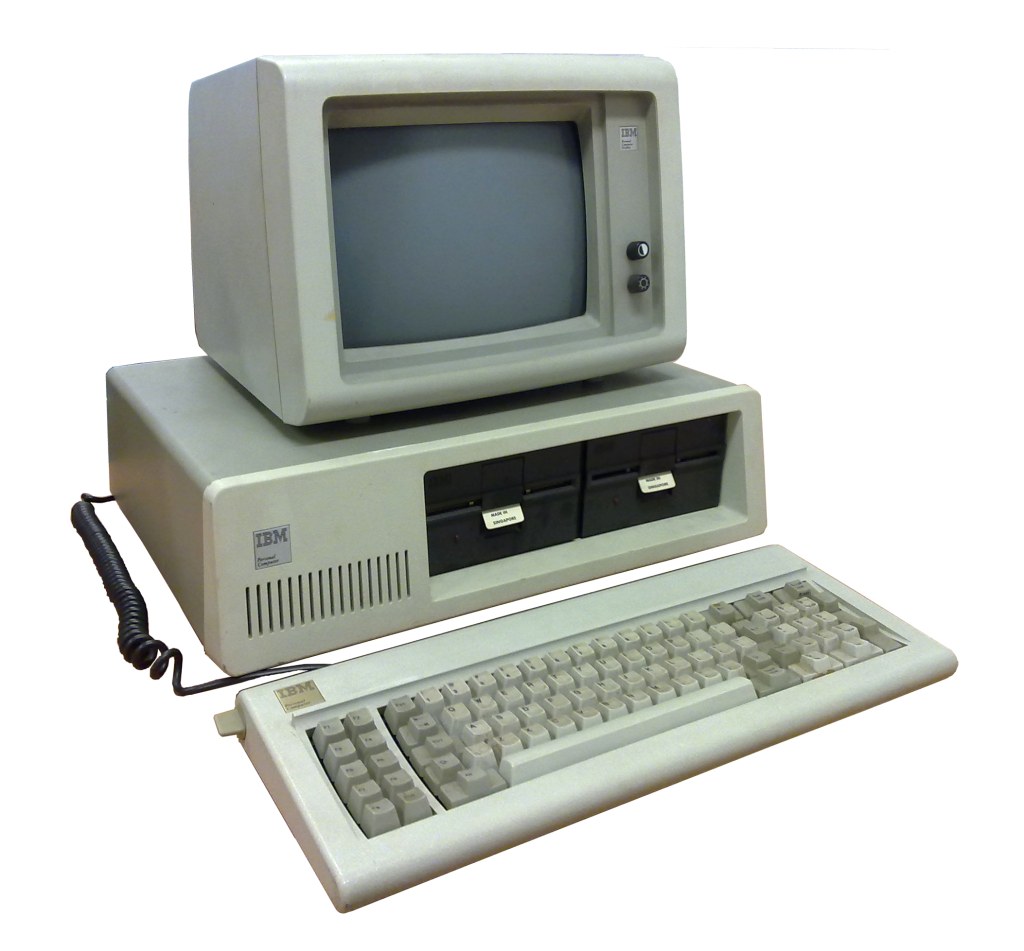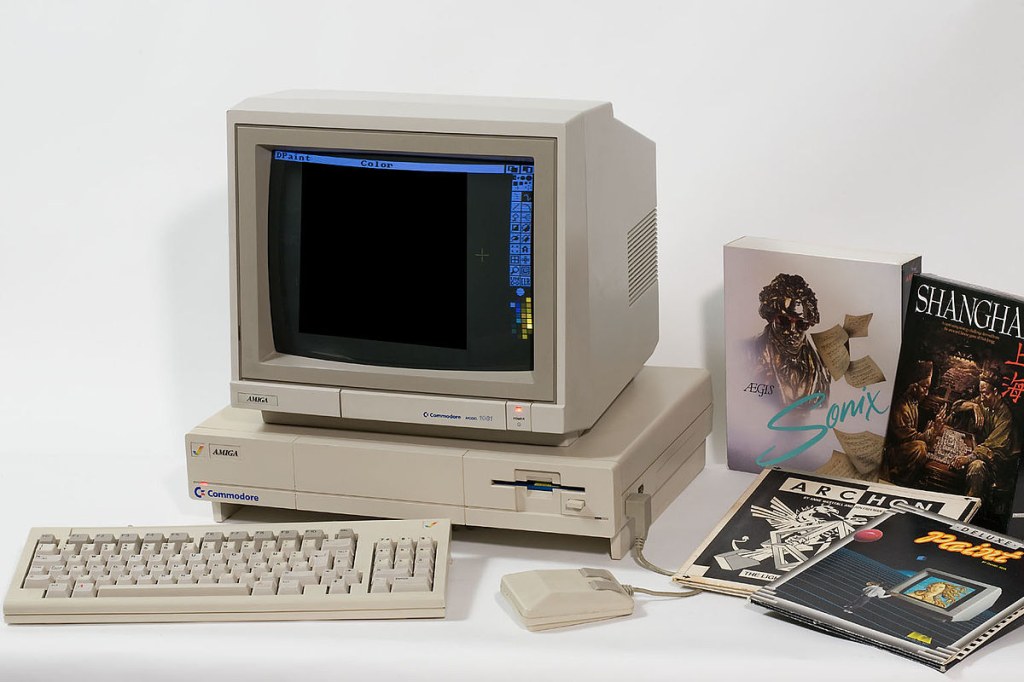Desktop PC Wiki: Your Comprehensive Guide to Personal Computers
Introduction
Greetings, Readers! In today’s digital era, desktop PCs have become an essential part of our lives. Whether you’re a student, professional, or gaming enthusiast, having a reliable computer is crucial. In this article, we will delve into the world of desktop PCs and explore the ins and outs of this technology. From its inception to its current advancements, we’ll provide you with a comprehensive guide to desktop PC wiki.
So, let’s dive in and discover everything you need to know about desktop PCs!
What is a Desktop PC?

Image Source: wikimedia.org
🖥️ A desktop PC, or personal computer, is a computing device designed for personal use. Unlike laptops or tablets, desktop PCs are stationary units comprising a computer case, monitor, keyboard, and mouse. These computers offer high performance, customization options, and robust hardware capabilities.
Desktop PCs are widely used for various purposes, including work, entertainment, and gaming. They provide a stable and powerful computing experience, allowing users to perform complex tasks efficiently.
Who Invented the Desktop PC?
👨💻 The credit for inventing the desktop PC goes to the legendary computer scientist, engineer, and inventor, Alan Turing. Although the concept of a desktop computer evolved over time, Turing’s work in the mid-20th century laid the foundation for modern computing.

Image Source: wikimedia.org
Since then, numerous pioneers and innovators have contributed to the development and advancement of desktop PCs, shaping the technology as we know it today.
When Were Desktop PCs First Introduced?
⏰ The first desktop PCs were introduced to the market in the 1970s. These early computers, such as the Xerox Alto and IBM 5100, were large, bulky, and primarily used by organizations and institutions.<='aligncenter' src='https://desktop-world.info/wp-content/uploads/2023/09/all-in-one-computer-wikipedia.png' title='desktop pc wiki - All-in-one computer - Wikipedia' alt='desktop pc wiki - All-in-one computer - Wikipedia' />
Image Source: wikimedia.org
However, it wasn’t until the 1980s that desktop PCs became more accessible to the general public. The introduction of user-friendly operating systems, such as MS-DOS and Windows, revolutionized the desktop PC industry and propelled its widespread adoption.
Where Are Desktop PCs Used?
🏢 Desktop PCs find applications in various settings, including:
Offices and workplaces: Desktop PCs are indispensable tools for professionals in diverse fields, enabling them to perform tasks efficiently and store large amounts of data.
Education: Schools, colleges, and universities heavily rely on desktop PCs for research, learning, and administrative purposes.
Entertainment: Gaming enthusiasts often prefer desktop PCs for their superior graphics capabilities, allowing for immersive gaming experiences.
Creative endeavors: Desktop PCs are essential for graphic designers, animators, and video editors, enabling them to create stunning visual content.
With their versatility and power, desktop PCs have become an integral part of various industries and households worldwide.
Why Choose a Desktop PC?
❓ There are several reasons why you should consider choosing a desktop PC:
Performance: Desktop PCs offer higher processing power, allowing for faster multitasking, complex calculations, and resource-intensive tasks.
Customization: Unlike laptops, desktop PCs provide extensive customization options, allowing users to upgrade hardware components according to their specific requirements.
Connectivity: Desktop PCs often have more ports and expansion slots, providing greater connectivity options for peripherals and devices.
Longevity: Desktop PCs are generally more durable and have longer lifespans compared to laptops, making them a worthwhile investment.
By choosing a desktop PC, you can optimize your computing experience and tailor it to your individual needs.
How to Choose the Right Desktop PC?
🤔 When selecting a desktop PC, consider the following factors:
Processor: Look for a processor with sufficient speed and cores to handle your desired tasks.
Memory (RAM): Higher RAM capacity allows for smoother multitasking and better overall performance.
Storage: Decide between traditional hard disk drives (HDDs) or faster solid-state drives (SSDs) based on your storage needs and budget.
Graphics: Determine whether you require integrated graphics or a dedicated graphics card for demanding applications, gaming, or content creation.
Form Factor: Choose the form factor that suits your workspace and usage preferences, such as a tower, all-in-one, or compact PC.
By considering these factors, you can make an informed decision and select a desktop PC that aligns with your specific requirements.
Advantages and Disadvantages of Desktop PCs
Advantages:
👍 Power and Performance: Desktop PCs offer superior processing power and performance capabilities compared to laptops.
👍 Customizability: Users can easily upgrade and customize desktop PCs to suit their evolving needs.
👍 Affordability: Desktop PCs often provide better value for money compared to high-end laptops.
Disadvantages:
👎 Lack of Portability: Desktop PCs are not designed for mobility and are not suitable for users who require computing on the go.
👎 Space Requirements: Desktop PCs occupy more physical space and may not be ideal for compact or minimalist setups.
👎 Power Consumption: Desktop PCs typically consume more power than laptops, leading to higher electricity costs.
Frequently Asked Questions (FAQs)
1. Q: Can I upgrade the components of my desktop PC?
A: Yes, desktop PCs are highly customizable, and you can easily upgrade components such as the processor, memory, and storage.
2. Q: Are desktop PCs more suitable for gaming than laptops?
A: Yes, desktop PCs offer better gaming performance due to their ability to accommodate high-end graphics cards and processors.
3. Q: Are desktop PCs more cost-effective in the long run?
A: Yes, desktop PCs generally have longer lifespans and are more cost-effective for users who require high-performance computing.
4. Q: Can desktop PCs connect to Wi-Fi networks?
A: Yes, desktop PCs can be connected to Wi-Fi networks either through built-in Wi-Fi adapters or external USB adapters.
5. Q: Do desktop PCs come with pre-installed software?
A: It depends on the manufacturer. Some desktop PCs may come with pre-installed operating systems or software packages, while others may be sold as barebones systems.
Conclusion
In conclusion, desktop PCs have proven to be indispensable tools in our technologically driven world. Whether you’re a student, professional, or avid gamer, having a powerful and reliable desktop PC can significantly enhance your computing experience.
We hope this comprehensive guide to desktop PC wiki has provided you with valuable insights into the world of personal computers. Remember to consider your specific needs and requirements when choosing a desktop PC, and don’t hesitate to seek expert advice if needed.
Final Remarks and Disclaimer
📝 The information provided in this article is for educational and informational purposes only. While we strive to ensure the accuracy and reliability of the information, we make no representations or warranties of any kind, express or implied, about the completeness, accuracy, reliability, suitability, or availability of the article or the information, products, services, or related graphics contained in the article for any purpose.
Any reliance you place on such information is therefore strictly at your own risk. In no event will we be liable for any loss or damage, including without limitation, indirect or consequential loss or damage, or any loss or damage whatsoever arising from the use of this article.
Please note that the information provided in this article may be subject to change, and we recommend referring to official sources or seeking professional advice for specific inquiries or concerns.